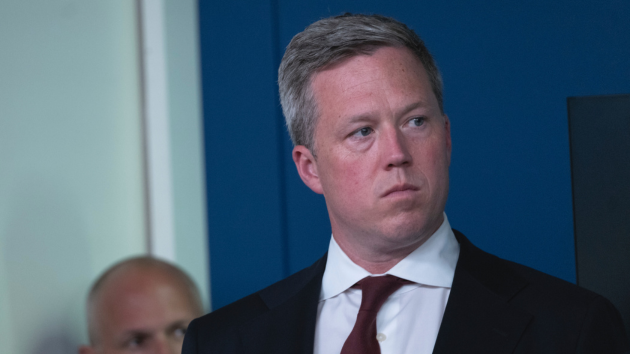Biden administration still at odds with Israel over plans for Rafah invasion
Written by ABC AUDIO ALL RIGHTS RESERVED on April 11, 2024

(WASHINGTON) — Even as U.S. officials applaud Israel’s initial steps to address dire humanitarian conditions in Gaza, the Biden administration and Israeli Prime Minister Benjamin Netanyahu are still openly at odds over Israel’s planned invasion of Rafah — a military operation American diplomats and experts say would have devastating consequences for civilians sheltering in the city.
In a White House news conference Wednesday, President Joe Biden said he had been “very blunt and straightforward” in a high-stakes phone conversation with Netanyahu last week about the need to alleviate suffering in the enclave.
While the president said failing to meet his demands for dramatic improvements in humanitarian conditions in Gaza would push the administration to reconsider its policy toward Israel, he declined to answer when questioned whether he would put conditions on American military aid as leverage.
“So, we’ll see what he does, in terms of meeting the commitments he made to me,” Biden said of Netanyahu.
Officials across Washington have also been vague in their descriptions of the consequences Israel may face, but they have enumerated the changes they expected to see, including surging aid to Gaza by opening a crossing in the north and the Ashdod seaport, one of Israel’s three main ports. Other changes would include repairing water supply lines in the enclave, and creating a more effective mechanism to ensure military activities don’t endanger aid workers.
But U.S. demands related to Israel’s battle plans for Rafah are conspicuously absent from the list — beyond saying that a full-scale assault would be a “mistake” and that Israel must consider “alternatives” — which the administration has yet to publicly spell out.
Regardless of the tough talk from the White House, Netanyahu on Tuesday restated his belief that an incursion into Gaza’s southernmost city was essential.
“This victory requires entry into Rafah and the elimination of the terrorist battalions there. It will happen. There is a date,” he asserted.
U.S. officials have said Israel hadn’t shared any new information on timing.
“No, we do not have a date for any Rafah operation — at least one that’s been communicated to us by the Israelis,” Secretary of State Antony Blinken said during a news conference on Monday. “On the contrary, what we have is an ongoing conversation with Israel about any Rafah operation.”
As part of those continuing talks, Blinken also said an Israeli delegation is expected to travel to the U.S. next week for meetings and that their discussion would include what the administration’s ideas are for alternative approaches for rooting out Hamas fighters in the area.
“I don’t anticipate any actions being taken before those talks. And for that matter, I don’t see anything imminent–but there is a lot of work to be done,” Blinken predicted.
“The president has been very clear about our concerns — our deep concerns about Israel’s ability to move civilians out of harm’s way, to care for them,” Blinken said.
In an interview taped last week — before his call with Netanyahu — that aired late Monday, Biden seemed to go even further than he did in his conversation with the prime minister by publicly urging Israel to implement a six-to-eight-week cease-fire to allow food and medicine to be distributed through Gaza.
Negotiators have been trying to secure a prolonged truce in exchange for the more than 120 hostages still inside the enclave.
While the president and members of his Cabinet have repeatedly declared a deal is within reach, some U.S. officials are privately much more pessimistic — doubtful that Hamas would agree to anything short of an arrangement that allows the group to retain power over Gaza.
The U.S. is also doubtful that Hamas can fulfill the requirements for the deal currently on the table, which calls for the release of 40 captives who are women unaffiliated with the Israeli military, children, individuals who are older than 50 or sick, according to a source familiar with the negotiations.
Paul Salem, the president and CEO of the Middle East Institute, argues that an Israeli offensive in Rafah will only diminish prospects for an agreement — as well as those for peaceful resolution to the conflict.
“Whether Israel takes Rafah or not, the longer-term strategic dilemma for the Jewish state will largely be the same,” Salem said. “Hamas as a movement will still exist. It can organize a long-term insurgency if Israel plans to maintain a full occupation of Gaza for the foreseeable future, or it can seek to rearm and regroup over time.”
Salem says that ending the war will depend on diplomats’ ability to forge a political path forward that includes Israel, the Palestinian Authority, Arab countries, the U.S. and the international community.
“All of that will only be made harder if tens of thousands more Palestinians are killed in conflict or extinguished by famine and disease,” he said.
Copyright © 2024, ABC Audio. All rights reserved.





